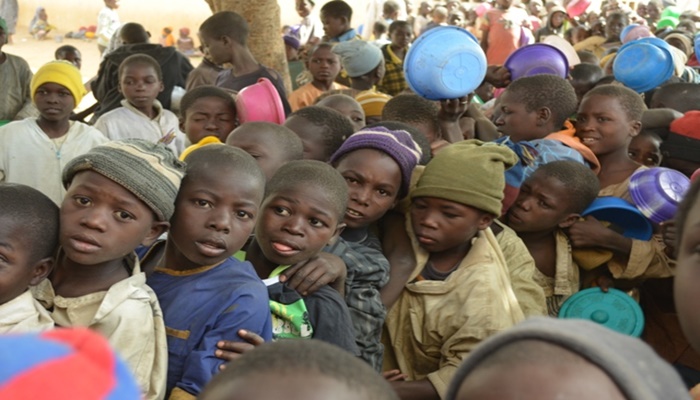
Chief Missioner of Nasrul-Lahi-L-Faith Society, Abdulazeez Onike, has called for political will to end Almajiri practice used in exploiting children in parts of Northern Nigeria.
Onike made the call while speaking with journalists at a news conference organised by NASFAT to end violence against children in Nigeria.
“Regarding Almajiri, we want to say unequivocally that it is exploitative and is unIslamic. Almajiri is not part of Islam, exploitation is not part of Islam.
“Some people have made it a source of their income; so it may require government efforts to end it,”said the Muslim cleric.
Earlier in his sermon, the NASFAT leader said Holy Prophet Muhammad (PBOH) demonstrated so much love for children that, on one occasion, He remained in prostrate position for a long period for his grandchild to enjoy riding on His back.
He said that NASFAT was collaborating with various organisations to win the fight against violence against children.
He appealed to state governments to domesticate the Child Rights Act so as to make the nation safer for children.
The president of NASFAT, Kamil Bolarinwa, called for enforcement of existing laws as well as strengthening laws to end violence against children.
“NASFAT is ready to work with states and national legislators to fashion out new bills that will prevent violence against our children,” he said.
He said that NASFAT’s campaign focusing on ending violence against children, which began last year, was yielding positive results in Lagos and Calabar, adding that a new advocacy, started in December 2018, would run for four months.
He commended USAID and UNICEF, who were NASFAT funding partners, for providing veritable platform in the onerous task of wiping out the Almajiri menace out of Nigeria.
In her speech entitled NASFAT — End Violence Against Children Campaign (Endvac), Focal Person, Babalola Ganiyat, said six out of every 10 children in Nigeria “experience one or more forms of physical, emotional violence before they reach 18″.
“More than 70 per cent experience this violence repeatedly. One out of two suffer physical violence such as punching, kicking, whipping, burning, chocking, attempted drowning, threatening or hitting with a weapon.
“One in four girls and one in 10 boys have experienced sexual violence; one in five boys and one in six girls suffer emotional violence,” she said.
She noted that the violence usually happened in environments that should keep children safe such as the home, neigbourhood and schools.
She explained that in line with President Muhammadu Buhari’s call to end violence agaist children by 2030, NASFAT was partnering with local and international organisations against the menace.
Credit: NAN






